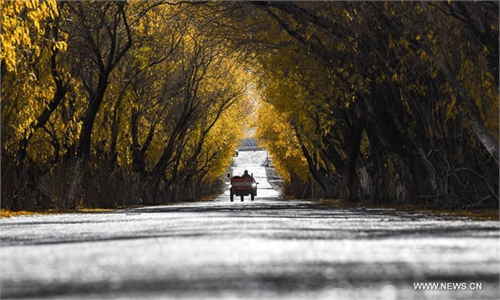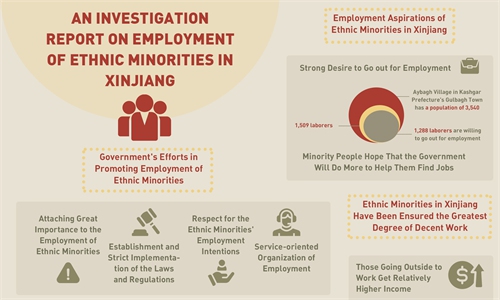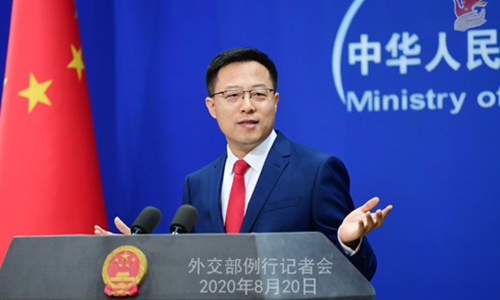Xinjiang people’s employment rights guaranteed; religious practices respected: investigation
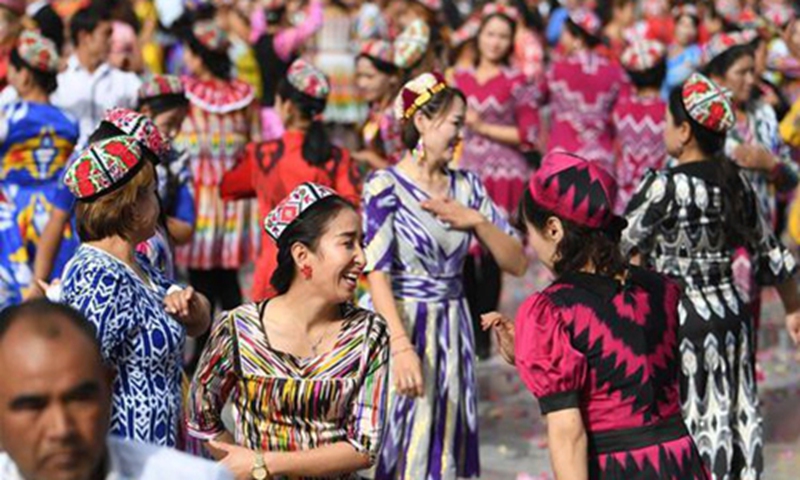
People attend a culture and tourism festival themed on Dolan and Qiuci culture in Awat County of Aksu Prefecture, northwest China's Xinjiang Uygur Autonomous region, Oct. 25, 2019. The festival kicked off recently in Aksu Prefecture. Photo: Xinhua
Field research involving 70 companies inside and outside Northwest China's Xinjiang Uygur Autonomous Region and in-depth interviews with 800 people involved showed that the employment rights of local people, including ethnic minorities, are fully respected and guaranteed, and there is no forced labor as some Western "think tanks" have claimed.
Attacking the employment situation in Xinjiang is some anti-China forces' ulterior motive to crack down on the region's economy and check China's development pace, observers said.
Some Western so-called think tanks, including the Australian Strategic Policy Institute — which receives funding from the US government — have been fabricating lies about Xinjiang, including that Uygur people are forced to work.
The investigation report, conducted by the investigation team of the Development Research Center of Xinjiang at the Chinese Academy of Social Sciences, showed the opposite — that Xinjiang people have a strong desire to work in more developed regions to improve their living standards.
Governments have announced a range of policies to guarantee their right to employment, help match jobs with prospective workers and offer professional training, according to the report released on Tuesday.
By going out to work, Xinjiang people, including those from ethnic groups, have higher incomes while retaining their religious practices and halal diet. People working outside Xinjiang visit mosques near their workplaces and the companies also offer halal food on top of subsidized or free housing.
Employment has led to wider social insurance coverage. As of 2019, 19 million people, or 90 percent of Xinjiang residents, had joined the employee insurance plan. Ethnic minority women, who used to be bound by conservative thoughts and were unwilling to go out to work, have emancipated their minds and become breadwinners.
Observers noted such an investigation, based on interviews with locals and people involved in the job market, is a strong rebuttal to allegations by so-called scholars and people hyping everything about Xinjiang to achieve their anti-China agenda.
Zhang Yonghe, a professor and executive dean of the Human Rights Institution of Southwest University of Political Science and Law in Chongqing Municipality, told the Global Times that the job market in Xinjiang is not large enough, and people going to inland places to work is a normal thing. Employment support policies in Xinjiang are part of the region's anti-poverty efforts, which are not different from other places in China.
"Some so-called scholars deliberately distort the facts and portray Xinjiang as exceptional. Their purpose is to use the region to attack China," he said.
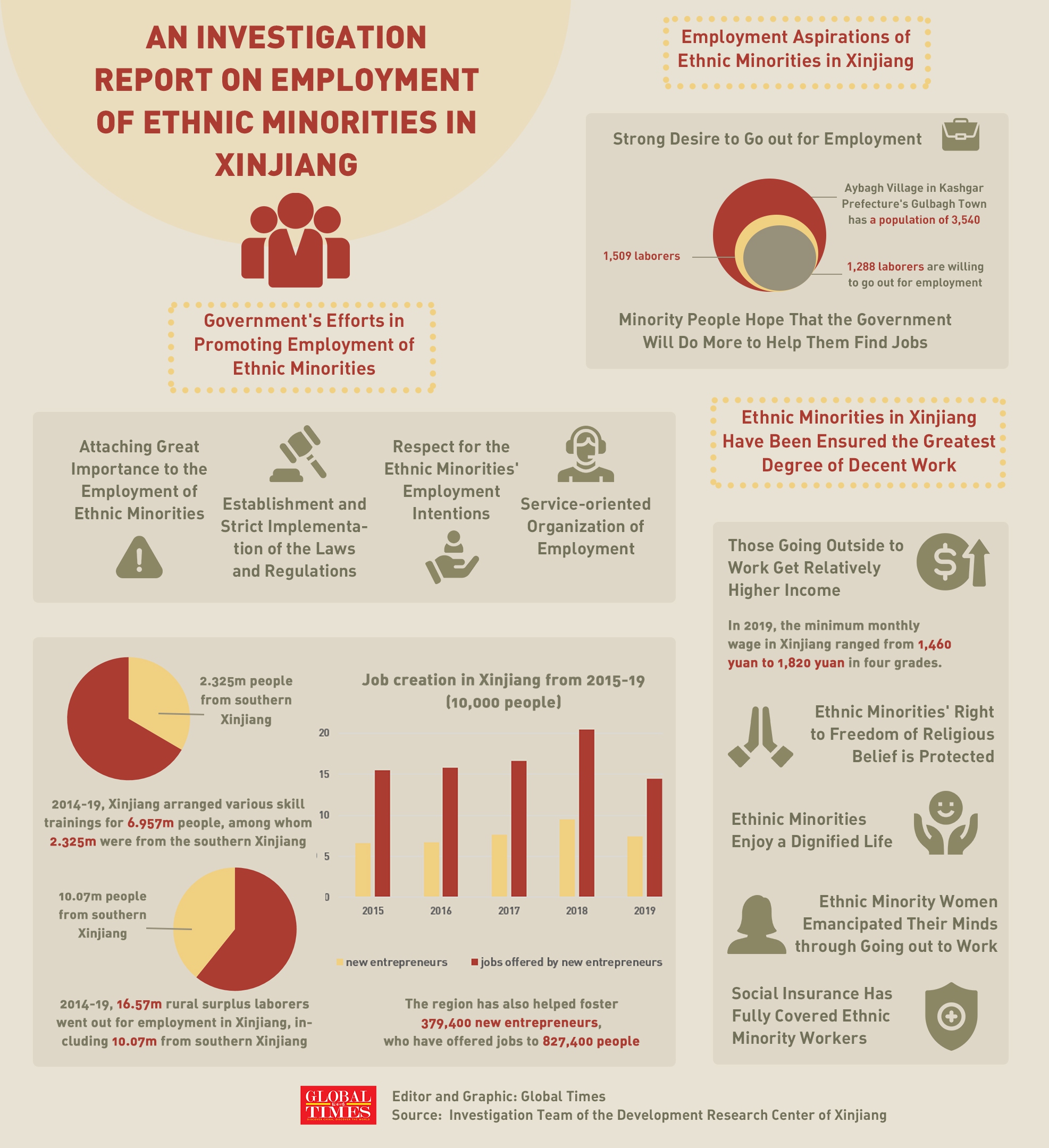
Infographic: GT
Having long conducted field studies in and outside Xinjiang, Zhang said the Western narrative cites unreliable sources and uses sensational headlines to fool people who know little about the region. Their aim is to crack down on the regional economy and check China's development, he said.
US Secretary of State Mike Pompeo on Monday again attacked China's policies in Xinjiang, and Chinese Foreign Ministry spokesperson Zhao Lijian asked who had authorized US politicians to deprive Chinese people of their right to pursue better lives.
The US should focus on its own coronavirus problems, gun crimes and other human rights issues rather than fabricate lies about China to crack down on Xinjiang's prosperity, Zhao said during Tuesday's press conference.
Zhao also appreciated Pakistan's objective and fair position on issues related to Xinjiang, and said China believes that more countries will speak out for justice after visiting the region.
"The West can say what it wants. I am telling you as a responsible official, we know everything we need to know about the Uygurs and everything else in China as they do about us. We have zero concerns, absolutely zero concerns," Pakistan's Special Assistant to the Prime Minister on National Security Division and Strategic Policy Planning Moeed Yusuf said earlier.
It showed that seeing is believing, Zhao said, commenting on Yusuf's remarks.
